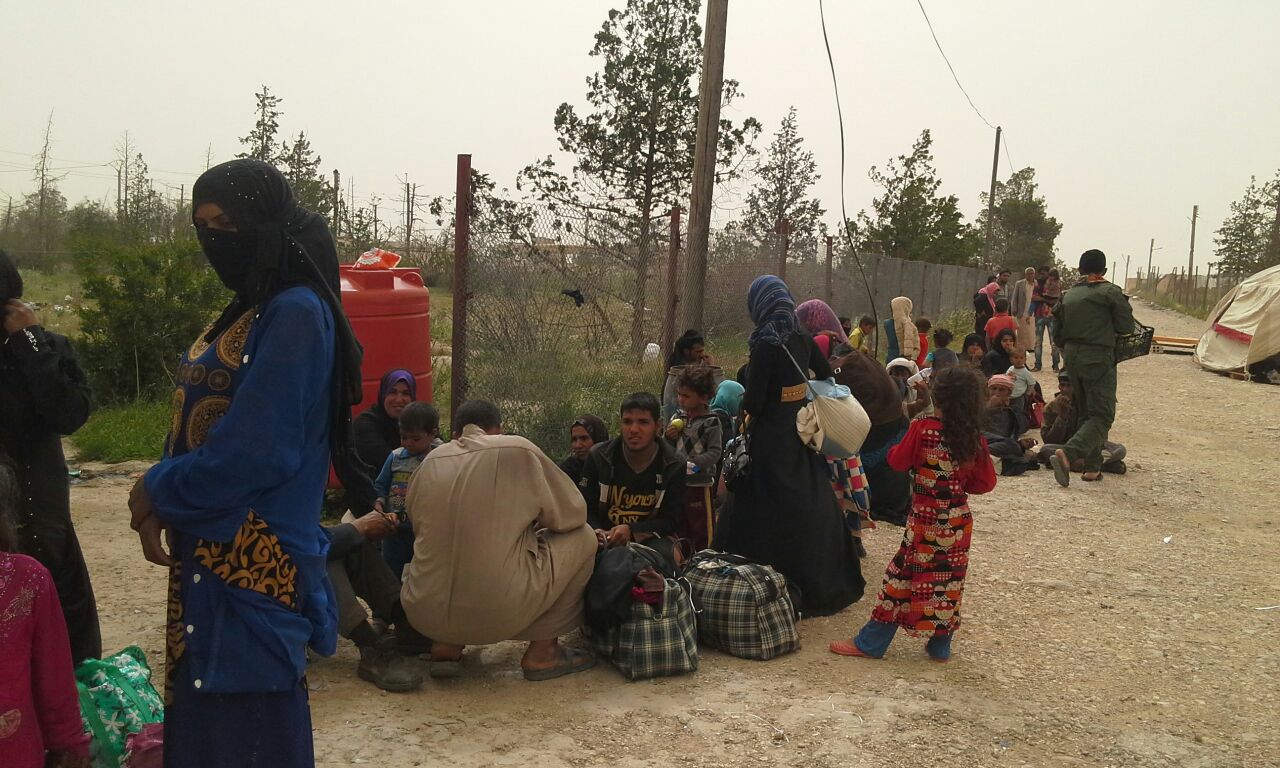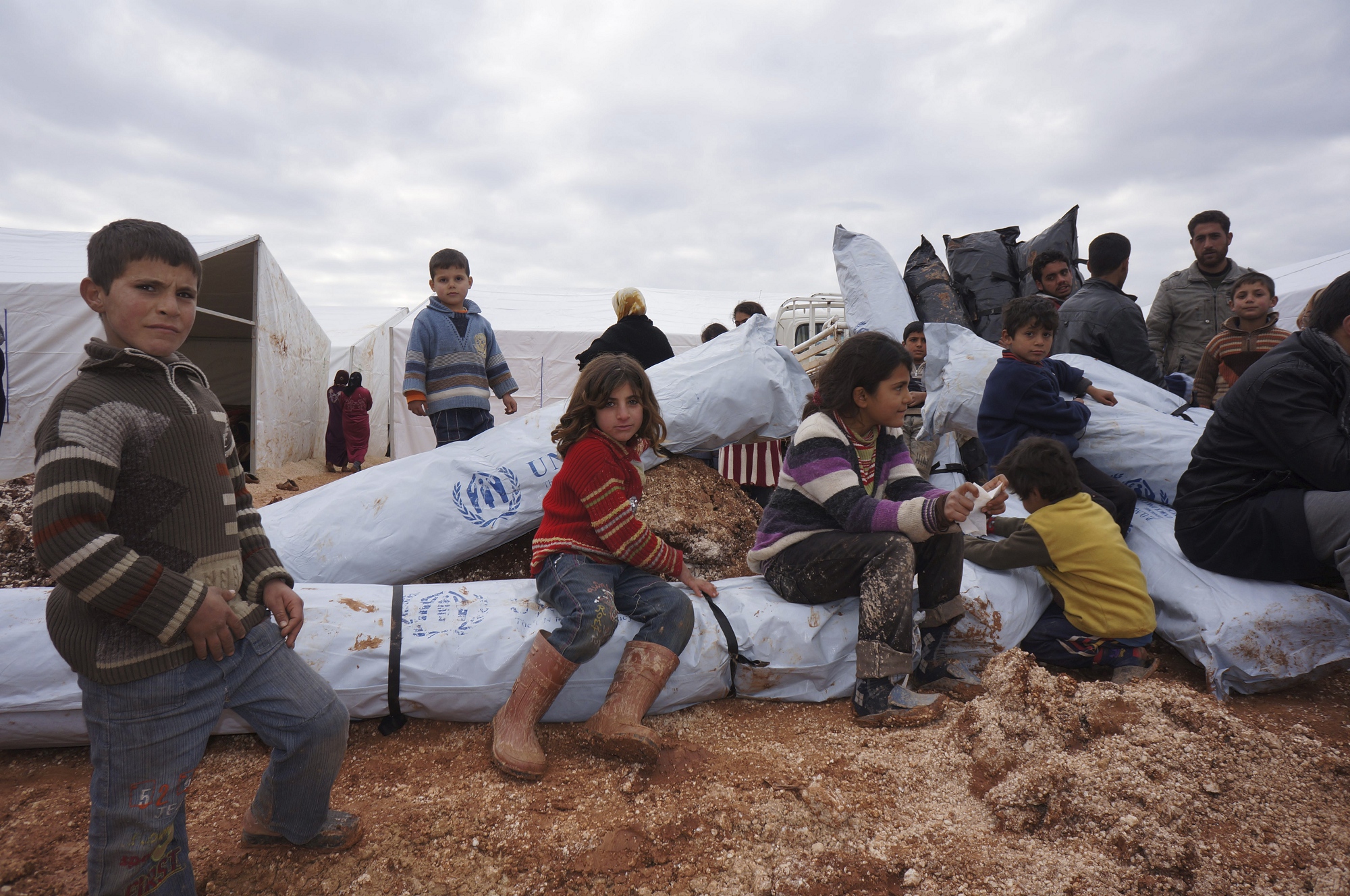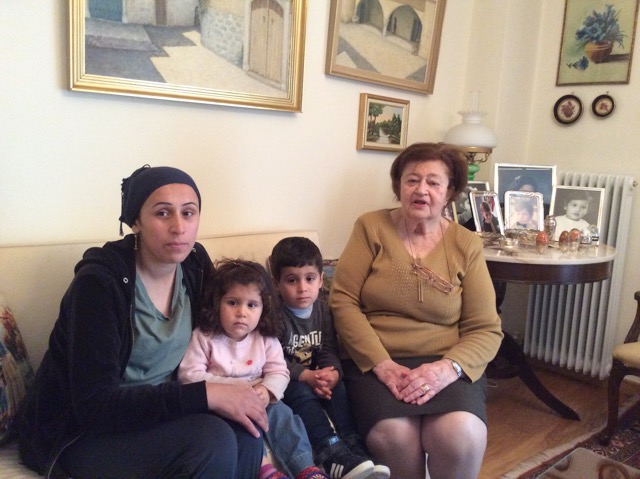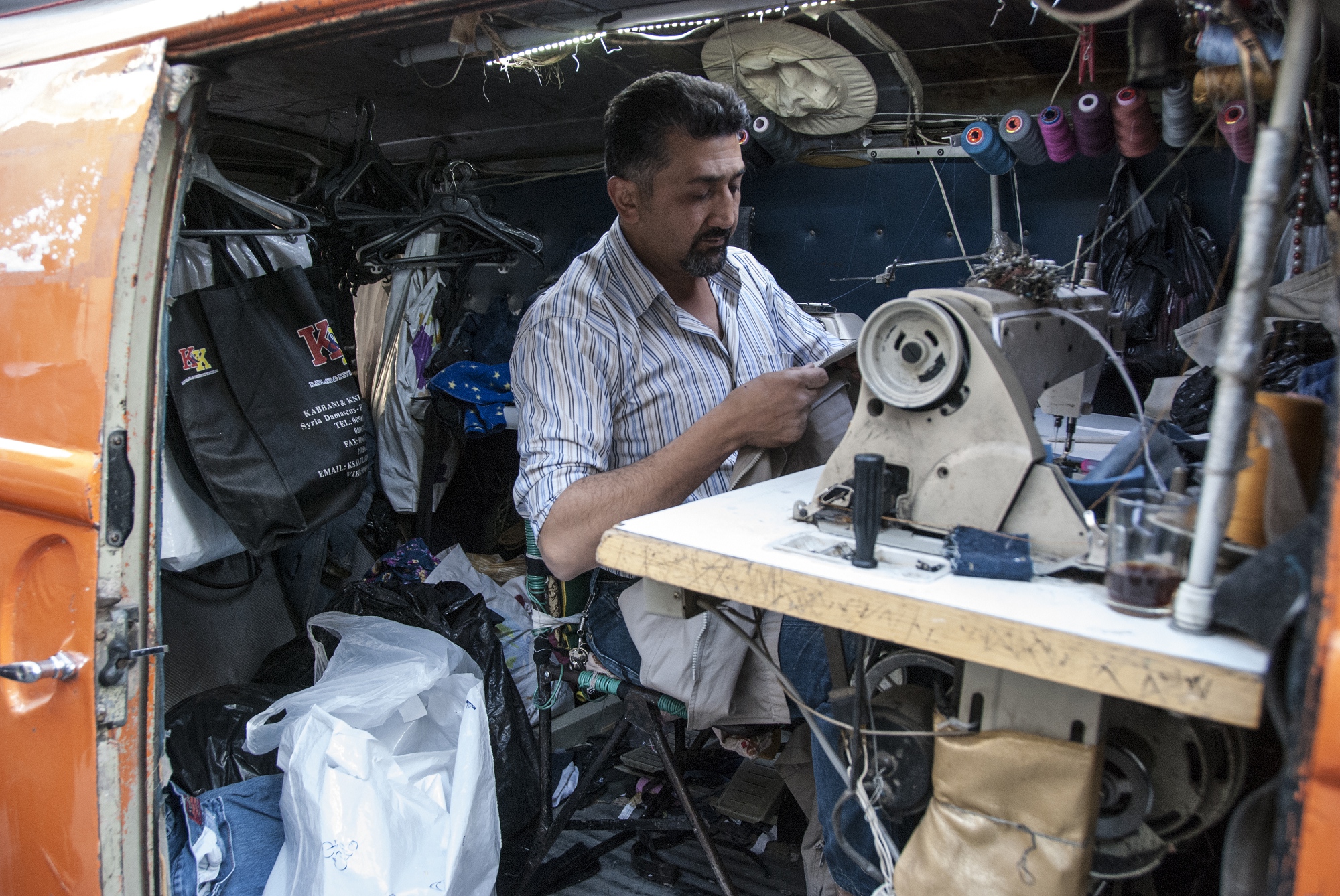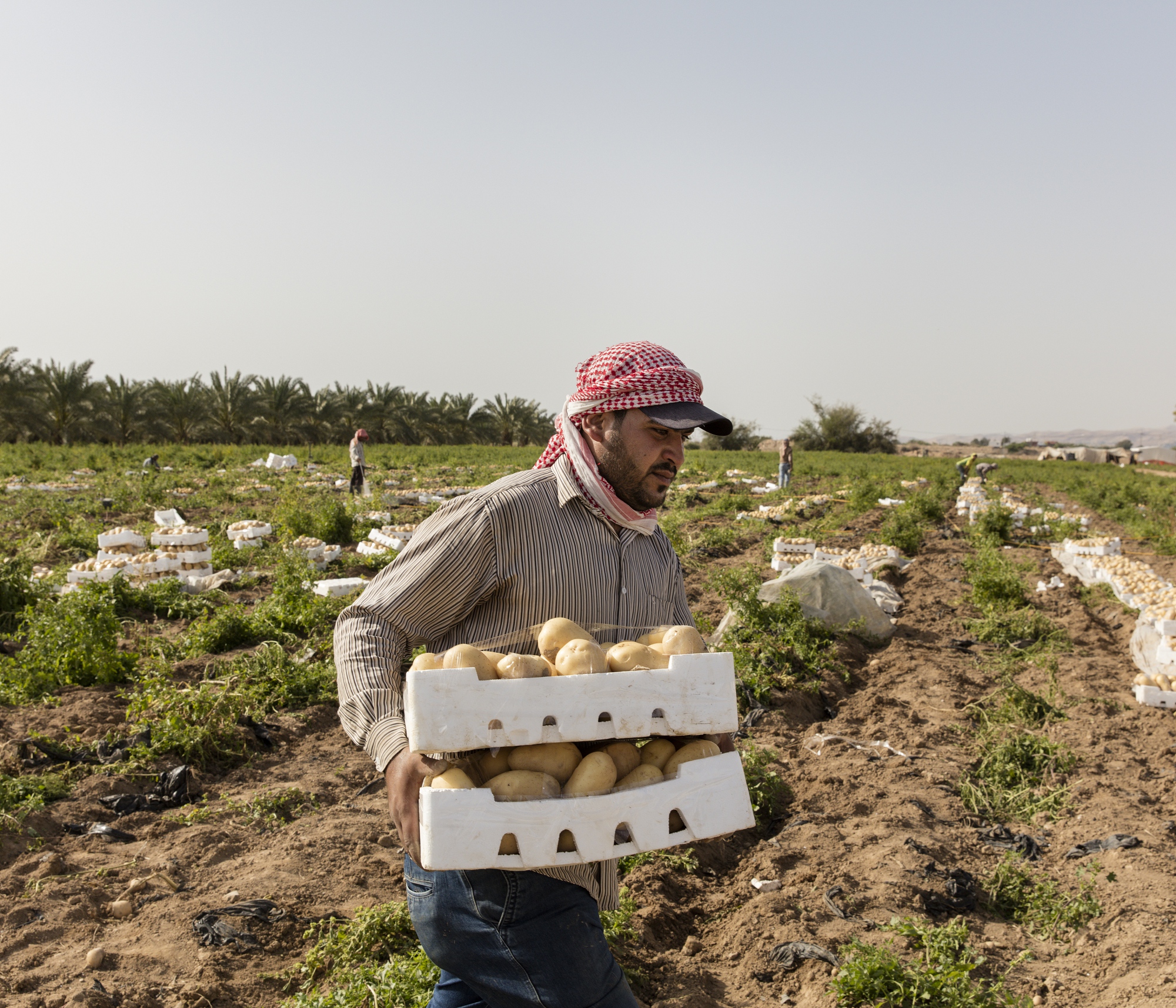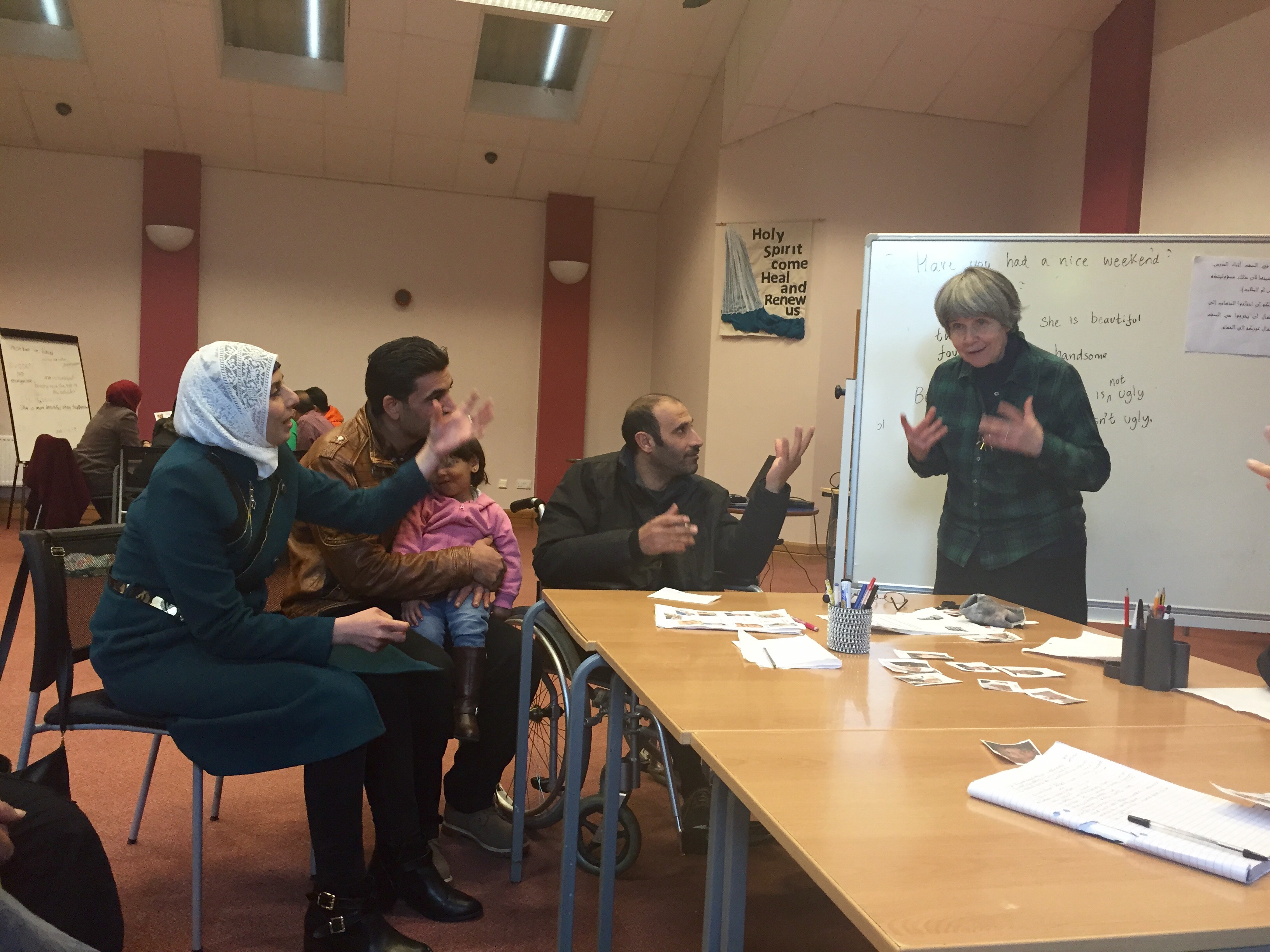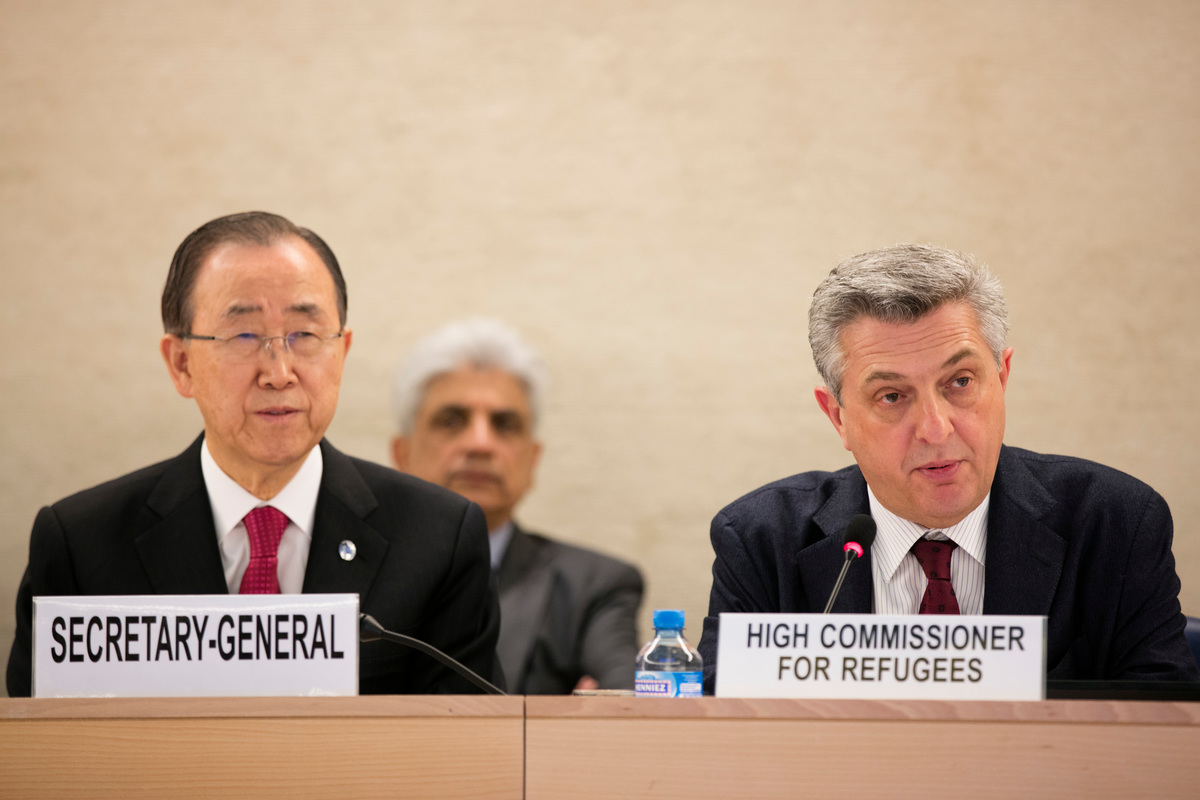Lebanese quietly welcome tens of thousands of Syrians into their homes
Lebanese quietly welcome tens of thousands of Syrians into their homes

SAOUIRI, Lebanon, March 4 (UNHCR) - As more and more Syrians flood into Lebanon, thousands of families have been quietly welcoming the uninvited guests into their homes, swelling the populations of many villages in Lebanon's Bekaa Governorate.
Since the start of the Syria conflict in March 2011, more than 320,000 Syrian civilians have registered as refugees or applied to register in a country of just 4.5 million people. The government says there are about 1 million Syrians in Lebanon, including migrant workers who have been joined by their families.
Such an influx has put a tremendous economic and social burden on a country just one quarter the size of Switzerland. But everywhere in this eastern border region, people like Faddeyah* and her husband Ali Abou have been opening their doors and sharing their modest resources with traumatized families.
"I cannot think of a country that has done more for refugees proportionate to its size," said Ninette Kelley, UNHCR's representative in Lebanon. "In each community you see compelling examples of hardship, compassion, endurance and the best of the human spirit."
Faddeyah and Ali Abou live in a modest home in the village of Saouiri, in Western Bekaa, but they have one spare room and offered it to needy refugees shortly after the fighting erupted across the border.
The need for accommodation was so great that they ended up taking in three families that had fled from Jdeidat Artos, a suburb of the Syrian capital of Damascus, in April last year. At first, the three families lived together in the one room, but it was simply too crowded and so UNHCR's partner, the Danish Refugee Council, put up two pre-fabricated houses in Faddeyah's yard.
"If it had not been for Madame Faddeyah, we would have found ourselves living out on the streets," said one of the Syrian guests, Amina, who moved in with her elderly mother and her daughter.
But the generosity and hospitality shown by Faddeyah and her husband has been multiplied many times in their village. Host families in Saouiri are providing shelter to about 500 Syrian families, or 3,000 people. The new arrivals have increased the village population by about 40 per cent.
Meanwhile, as more and more Syrians cross the border, the search for somewhere to stay is becoming tougher. "Many of our relatives want to escape the fighting but they cannot come because they would not know where to go and where to live. People in Syria know by now that finding shelter is difficult," said Amina.
UNHCR and its partners have helped address the situation in a variety of ways. For starters, the refugee agency has funded the renovation of 700 homes owned by families wishing to help. These have provided shelter for more than 2,000 refugees across the country.
One of UNHCR's key partners, the Norwegian Refugee Council (NRC), has agreed to complete construction of 71 Lebanese-owned houses in the Bekaa and Akkar governorates in exchange for letting Syrian refugees stay in the homes for one year free of charge. Since April 2011, NRC has rehabilitated 589 housing units and 88 so-called collective shelters as well as fixing the roofs of 692 houses, The NGO's work, partly funded by UNHCR, has helped more than 2,000 families. Another partner, Premier Urgence, will soon begin rehabilitating shelters for 45 families.
Public buildings are also being used to accommodate refugees. The government, together with UNHCR and its partners continue to identify empty public buildings that could be renovated for use as collective centres, providing shelter for Syrian families arriving in Lebanon.
Since the beginning of the year, more than 15,000 people have been given accommodation in such renovated buildings nationwide. In Bekaa's Mdukha municipality, for example, 14 families (75 people) moved into an empty school that was later renovated.
One of the residents, Radwa, said conditions were very tough when they first moved in. "There was only one small toilet for everyone and we all had to live in the only room that was habitable. The building was renovated by the Danish Refugee Council with UNHCR support. A communal kitchen was installed, 11 rooms rehabilitated and two more toilets installed.
Faddeyah, meanwhile, reflected on the ordeal her houseguests and tens of thousands of other Syrian refugees in Lebanon have endured. "These people had to go through extraordinary events," she said, adding that many had left behind family members, including those who were ill or injured and could not make the journey. "Their concern for those left behind is making them sick," said the sympathetic host.
* All names have been changed.
By Reem Alsalem in Saouiri, Lebanon


